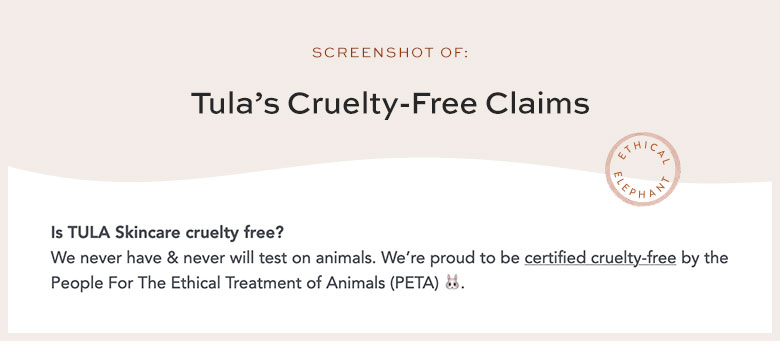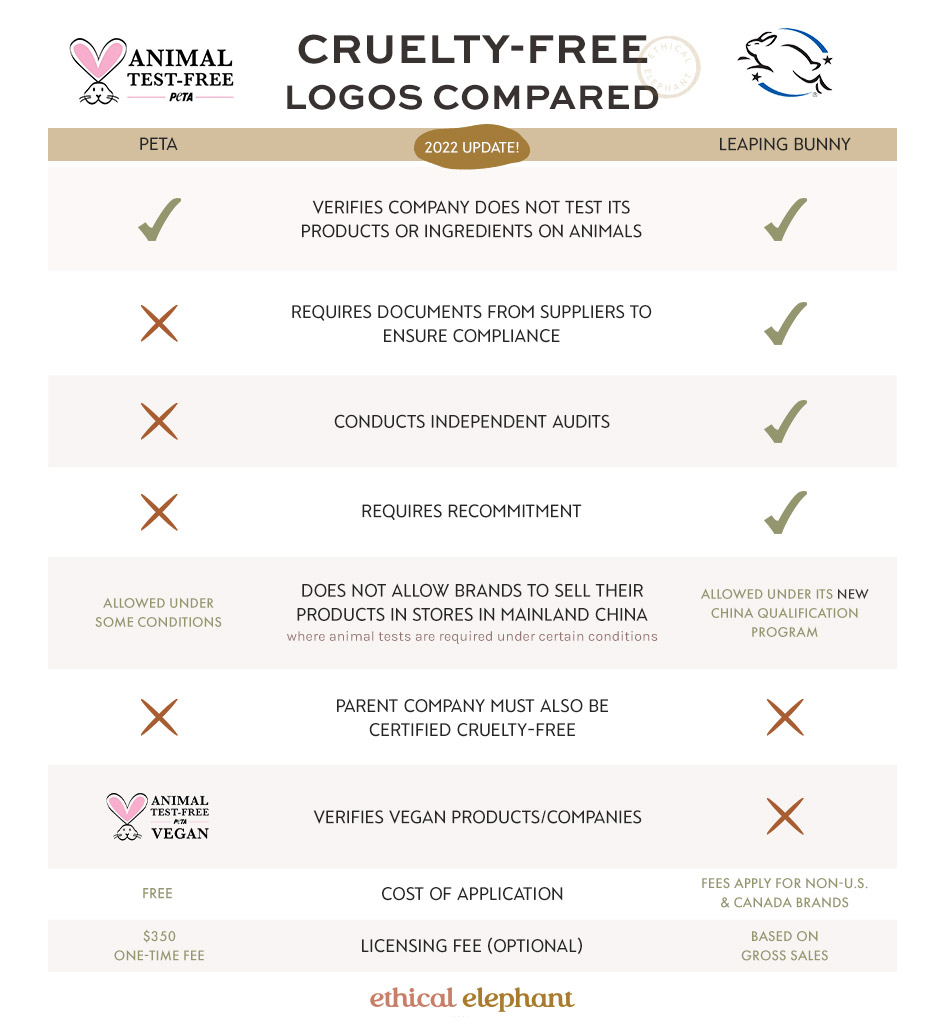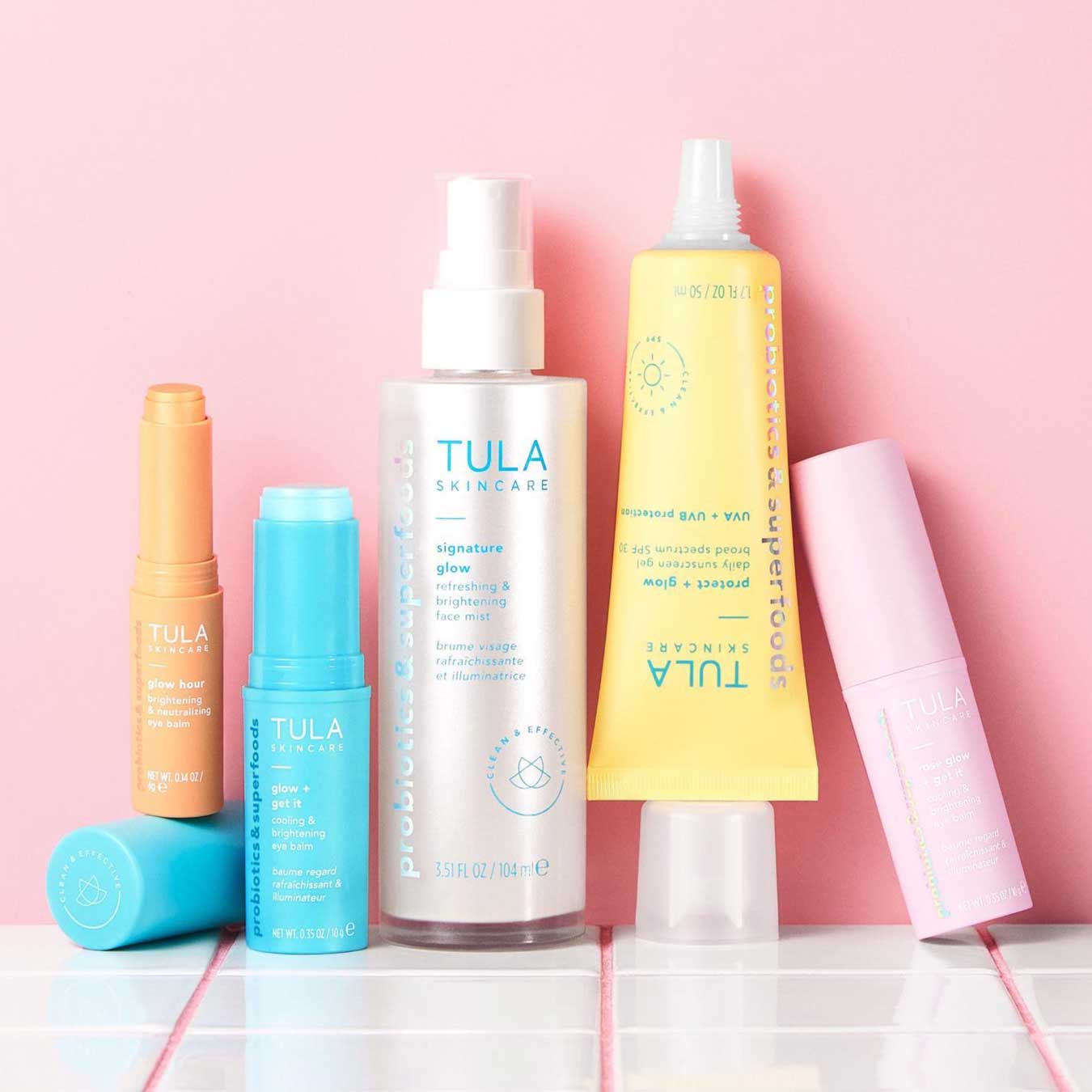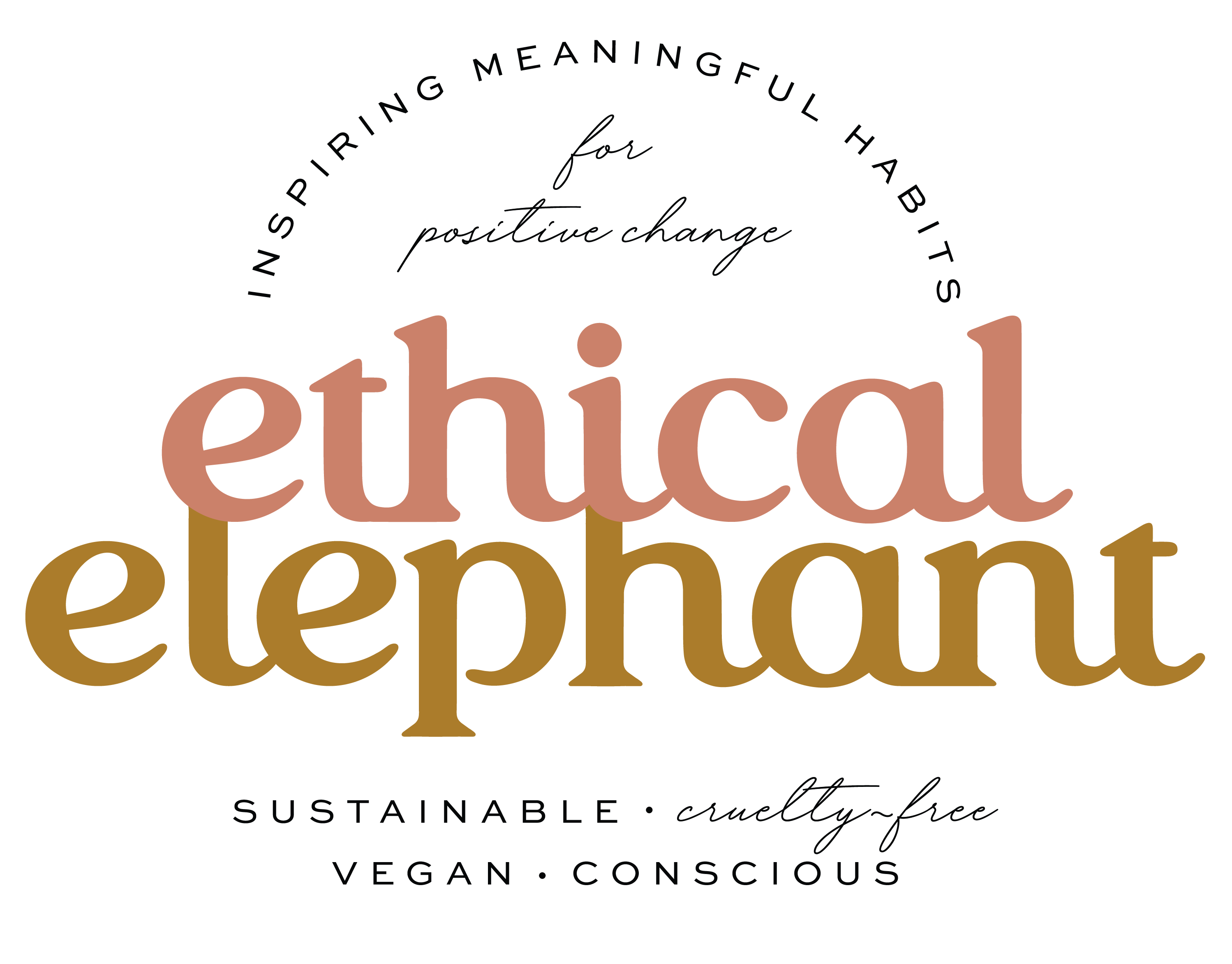This post may contain affiliate links that at no additional cost to you, I may earn a small commission.
Is Tula Cruelty-Free?
❓It is unclear whether Tula is truly cruelty-free or animal-tested. Therefore, Tula is listed as Grey Area – Brands with Unclear Policies.
To be a truly cruelty-free brand, companies must meet all of the following:
- Company does not test its products or ingredients on animals or ask others to test on its behalf
- Company can ensure none of its ingredient suppliers test on animals
- Company does not allow or sell its products under conditions where animal testing is required by law
Based on our research, Tula has not met all of the above cruelty-free criteria. For those reasons, we are unable to classify Tula as a truly cruelty-free brand.
Learn more about our findings and why Tula’s cruelty-free policy is unclear below.
Tula’s Animal Testing Policy
When asking, does Tula test on animals? We must look beyond to ensure none of Tula’s ingredients or suppliers test on animals. And they don’t sell in any country or under conditions that may require animal testing by law.
To assess whether brands are cruelty-free, I always start with the company’s official animal testing policy on their website.
Tula claims on their website’s FAQ page that they never have and never will test on animals. And that the company is PETA certified cruelty-free.
Below is a screenshot of what’s currently stated on Tula’s website:

However, animal testing for cosmetics can happen at various stages of product development, including at the ingredient level, and is often done by others and not the cosmetic company itself.
This is why we always assess a company’s cruelty-free policy using our Cruelty-Free Checklist. This ensures no animal testing was performed by the brand itself, its suppliers, or any third parties.
Also, PETA’s cruelty-free certification is not as strict and thorough as Leaping Bunny.
PETA does not require companies to submit documents from all their suppliers, nor do they conduct independent audits to ensure compliance with their cruelty-free standards.
See below for a comparison chart of Leaping Bunny vs. PETA’s cruelty-free standards.

So, just because Tula is PETA-certified does NOT mean they automatically meet all of our criteria in order to be considered a cruelty-free brand.
I also tried reaching out to Tula multiple times over the years, asking for more information about their animal testing policy. More specifically, I wanted to know if they commission or allow others to test, not just their finished products but their ingredients, on animals, including when selling in countries that require animal testing (like in mainland China).
However, I keep getting the same canned response that they never have and never will test on animals and that Tula is PETA-certified. The exact same statement from their FAQ page.
Cruelty-Free Policies
Just because a brand claims they are ‘Cruelty-Free,’ doesn’t always mean that’s the case.
That’s because there is no legal definition for the label ‘Cruelty-Free.’ It can mean different things to different people. But Cruelty-Free is generally used to imply no animal testing. More specifically, the ingredients, formulation, or finished product are not tested on animals at any stage of product development.
At ethical elephant, we always assess a company’s cruelty-free policy using our Cruelty-Free Checklist. This ensures no animal testing was performed by the brand itself, its suppliers, or any third parties.

Despite asking Tula for specific details about its animal testing policy, Tula failed to answer any of my questions.
At this time, I have not received clarification from the brand on whether their ingredients are tested on animals, whether they ensure none of their suppliers test on animals, or whether Tula is sold in mainland China or any other markets that require animal testing.
Therefore, we are unable to consider Tula to be a truly cruelty-free brand or animal-tested. Tula is on our Grey Area Brands List – Brands with Unclear Policies.
Is Tula Owned By A Non-Cruelty-Free Parent Company?
Yes. Tula is owned by Procter & Gamble (P&G), a parent corporation that still engages in animal testing in 2023.
Some cruelty-free consumers may choose to purchase and support cruelty-free brands owned by animal-tested parent corporations as they hope it will convince the parent company to become cruelty-free.
Does Tula Test on Animals?
Unfortunately, Tula failed to address whether any of its ingredients are tested on animals, if the company verifies with all of its suppliers that they don’t test on animals, and if the company allows its products to be tested on animals when required by law.
As a result, we cannot classify Tula as a truly cruelty-free brand until they are more transparent with their animal testing policy.
Currently, Tula is on our Grey Area Brands List – Brands with Unclear Policies.
Is Tula Vegan?
❌ Tula is NOT vegan. Tula claims to offer some “vegan” options that are free of animal-derived ingredients, but because Tula’s cruelty-free status is unclear, we wouldn’t consider anything sold or produced by Tula to be vegan at this time.
In order for products to be considered vegan by ethical elephant’s standards, the products and their ingredients must not be tested on animals anywhere in the world. Also, they must not contain any animal-derived ingredients or by-products.
Vegan Policies
Similar to ‘Cruelty-Free,’ there is no standard or legal definition for the label ‘Vegan.’ But Vegan is generally used to mean formulated without animal-derived ingredients or animal by-products.
Some common animal products in cosmetics include carmine, lanolin, snail mucus, beeswax, honey, pearl or silk-derived ingredients, animal-based glycerin, keratin, and squalene.
There are plant-based and synthetic alternatives to animal-derived ingredients. But unless a brand explicitly labels its ingredients or product as Vegan, it’s often difficult to know with certainty whether a product is vegan just by reading the ingredient list.
So it’s best to ask the company and manufacturers to ensure the ingredients they chose were from non-animal sources.
Cruelty-Free Alternatives to Tula
Looking to switch to cruelty-free products? Here are some cruelty-free brands to check out:








1 thought on “Tula (P&G)”
This is an interesting topic and I am curious to know more about the cruelty-free and vegan status of Tula products. Can you provide some more information on this subject?